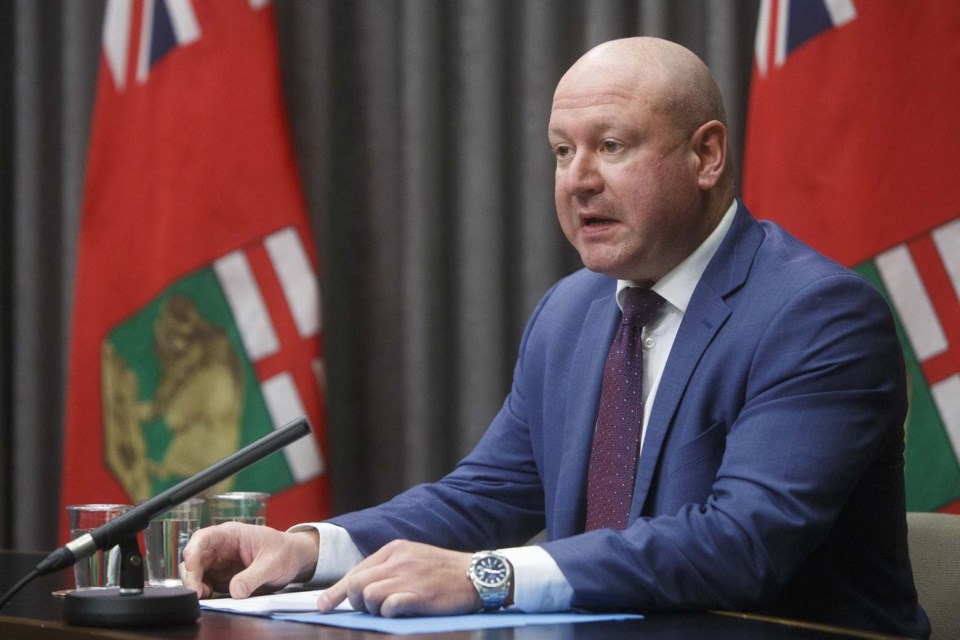After announcing 349 new cases Wednesday, the province’s chief public health officer said there have been reports of Manitobans travelling out of province to shop.
"It’s disappointing to hear about people driving outside the province to do non-essential shopping. We’ve heard reports of driving to Yorkton (Sask.) or to Kenora (Ont.) to do some shopping," said Dr. Brent Roussin, after which he sighed heavily.
"Again, our messaging has been really clear. and the reasoning behind our messaging is really clear. There’s a purpose beyond all these orders — it’s to save Manitobans’ lives. Going around those orders puts Manitobans at risk."
He strongly advises the public against travel for non-essential reasons.
Meanwhile, according to a CTV news story, such shopping expeditions are welcome. A headline from Nov. 24 reads: "Out-of-province shoppers welcome in Yorkton following increased Manitoba COVID-19 restrictions."
Yorkton’s mayor, Mitch Hippsley, said the community of 18,000 is very lucky to have shoppers come to town.
"We just hope that they will follow the code of health law as in social distancing and masks and hand sanitizing and that goes without saying," Hippsley is quoted as saying.
Further, according to the CTV story, some business owners in Yorkton are not worried about the potential influx of out-of-province shoppers Manitoba’s restrictions may bring.
The Yorkton Business Improvement District (YBID) even echoed the city on its stance by encouraging Manitoba residents to shop local and follow health guidelines.
But Roussin repeated, as he does every day, that Manitobans are advised to stay home.
"Right now, non-essential travel … we’re advising strongly against it. We advise people to stay home. We have limits on essential items. We need to ensure Manitobans have access to essential items. But we don’t want in-person, non-essential shopping."
Roussin said there are options besides travelling out of province: online shopping and curbside pickup.
"But right now, we need to stay home as much as possible, which means not going out for non-essential reasons. Not travelling for non-essential reasons," he said.
"It’s really important to get this message, we have 303 people in hospital, 50 of which are in intensive care. We’re asking people not to travel unnecessarily."
He said, again, the purpose is to save lives. Similarly, Roussin said that, where possible, people should work from home.
"If that’s not possible, then take every step possible to reduce the risk of transmission in your employment setting — decreased crowding, wear masks, hand hygiene, ensure people are screening every day for symptoms," he said.
"Employers should also be looking at ways to assist their employees who need to stay home when they’re sick, or a person they care for is home sick, or when those individuals are required to self-isolate."
Roussin said public health continues to hear reports of cases and contacts being told they need to get to work or their job is at risk.
"I certainly don’t understand why an employer wants somebody who’s infectious for COVID at the workplace, or somebody who’s high risk of becoming infectious, such as a contact. You need to work with your employees to find ways to allow people to self-isolate when they’ve been directed to," he said.
Finally, Roussin sent the message people need to stop getting angry at public health nurses on the phone.
"We’re hearing reports from public health, contact tracers, public health nurses, of very angry people on the other end of the telephone line when they’re advising them that they’re contacts and/or cases and need to self-isolate," he said.
"They are more angry when we delve into what self-isolation means."
He reminded Manitobans that the purpose of self-isolation is one of the biggest tools at hand to limit the spread of COVID-19.
"It’s the most important tool we have, outside of the public health restrictions. If we want to be able to get these restrictions lifted, we have to have very active case finding and isolation and contact finding and isolation. Without that, it’s going to be very difficult to lift the restricted."
Roussin asked Manitobans to be respectful.



